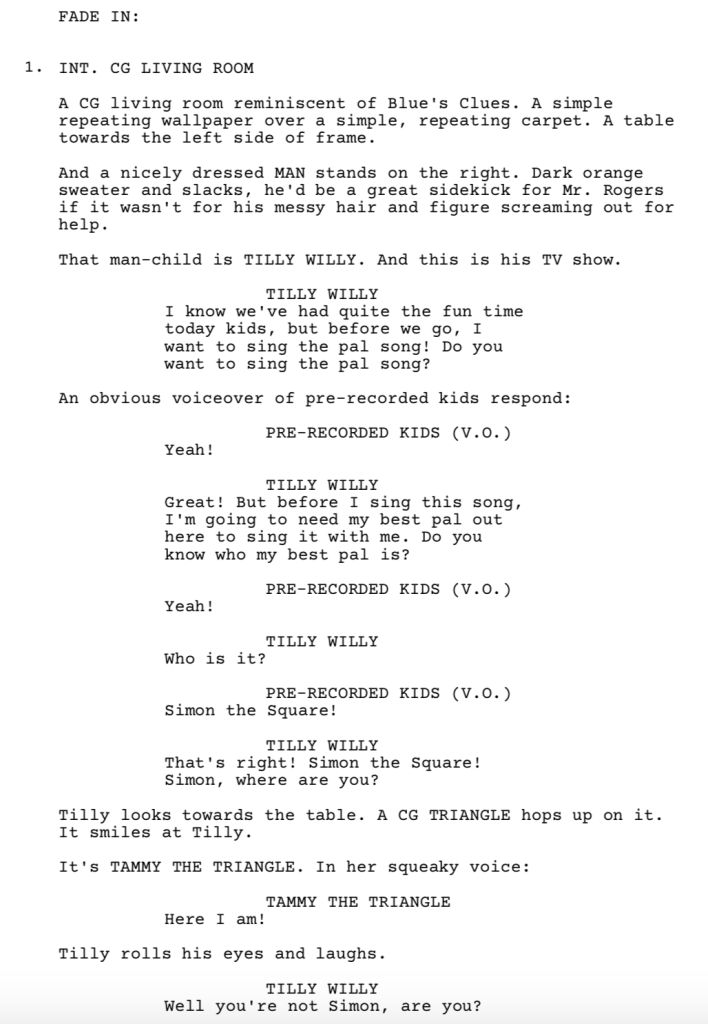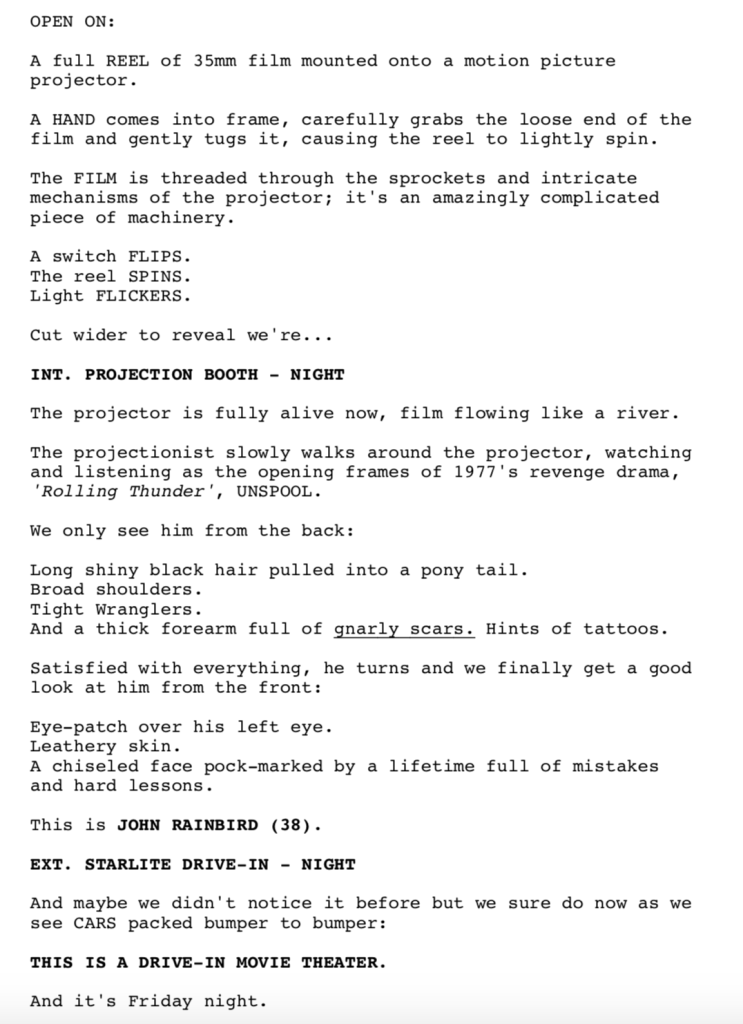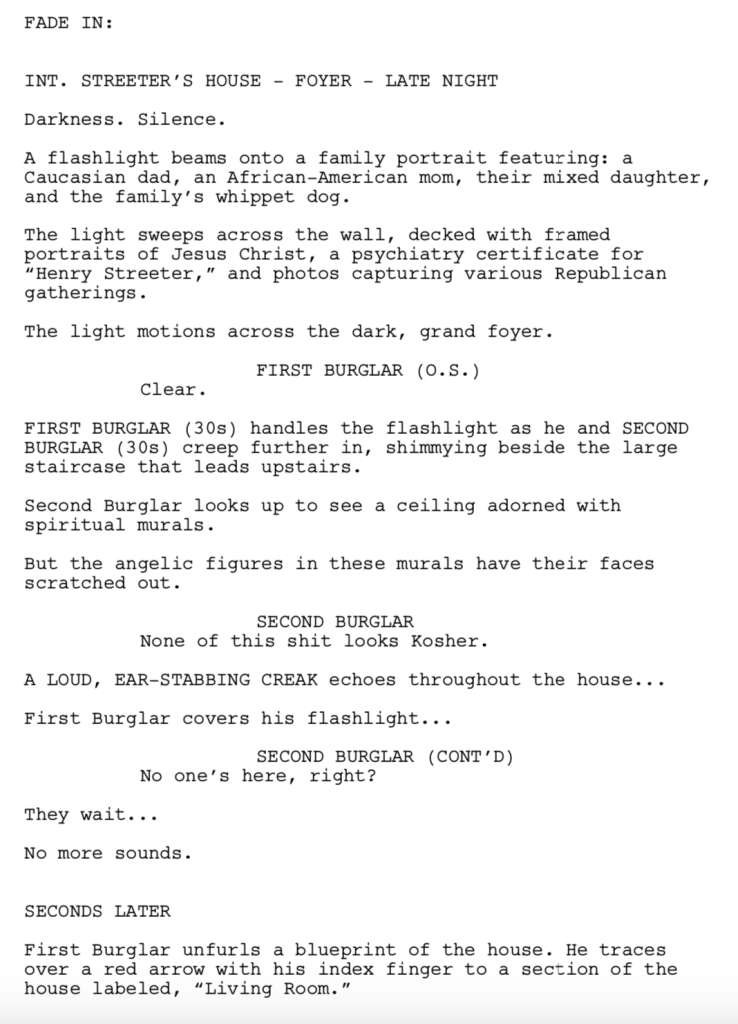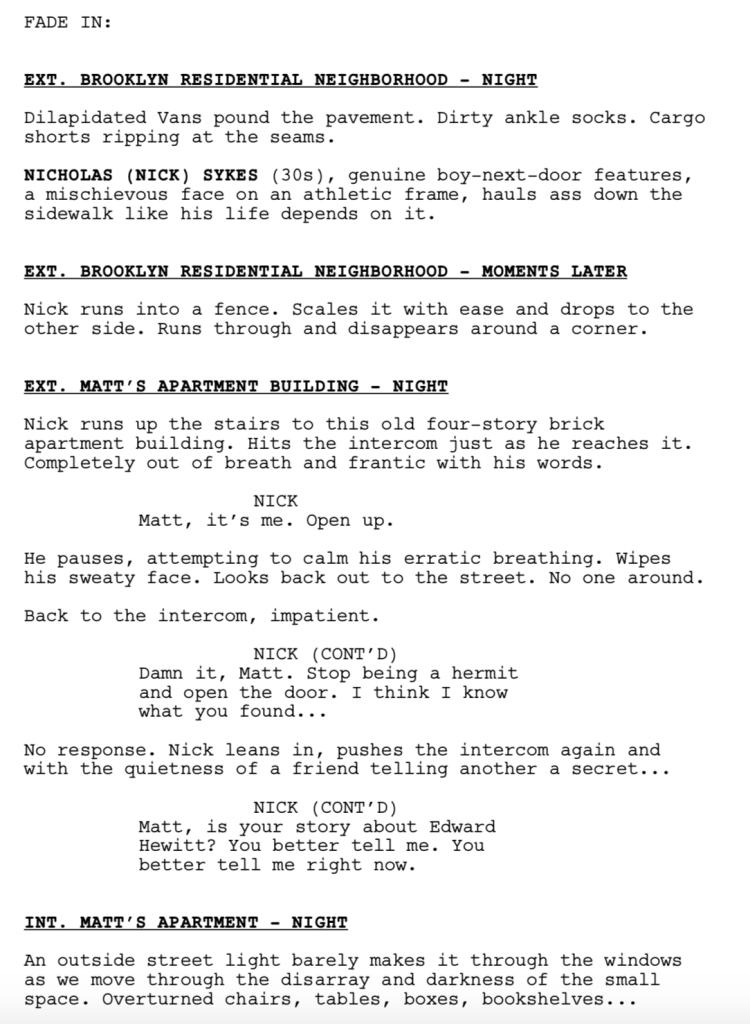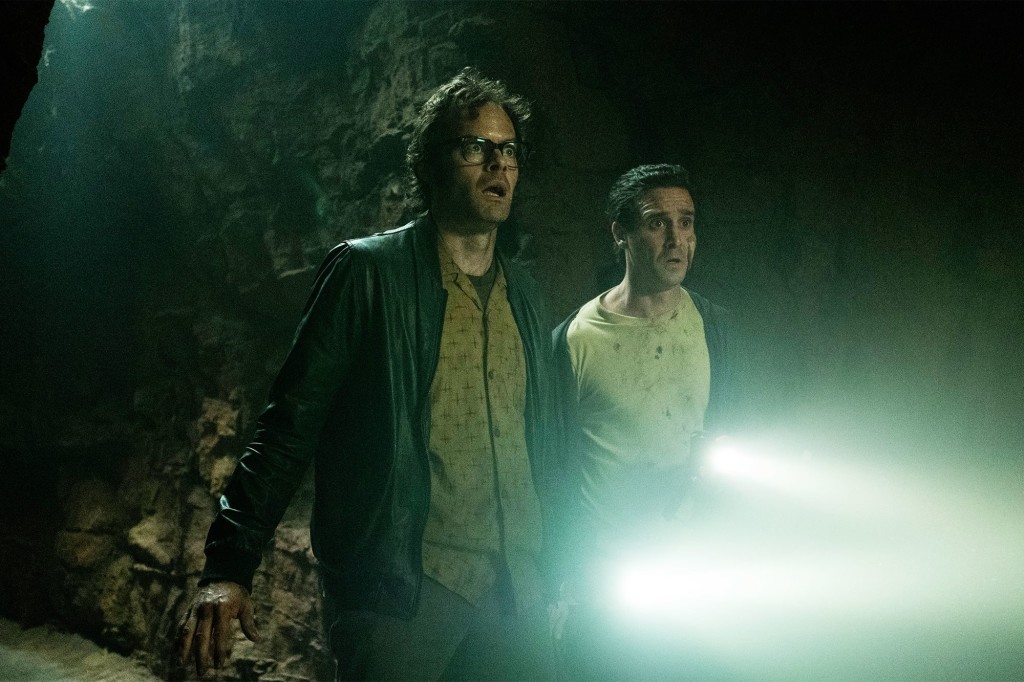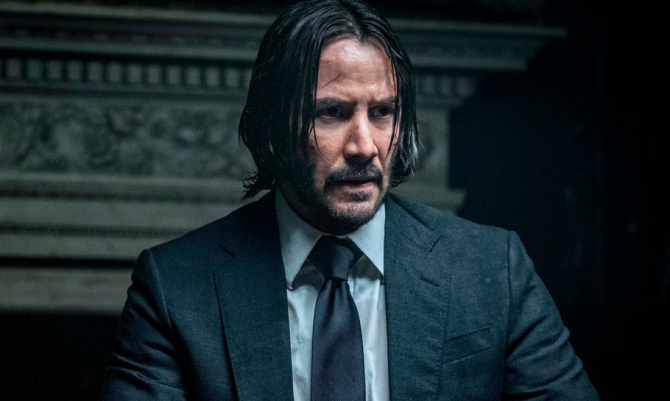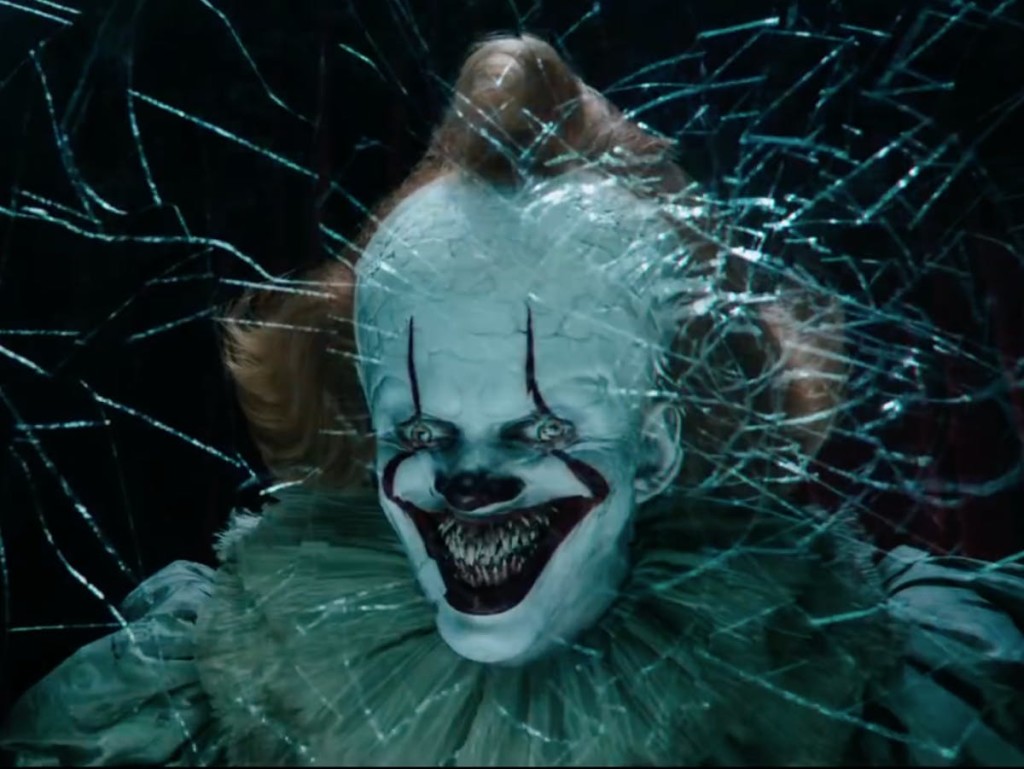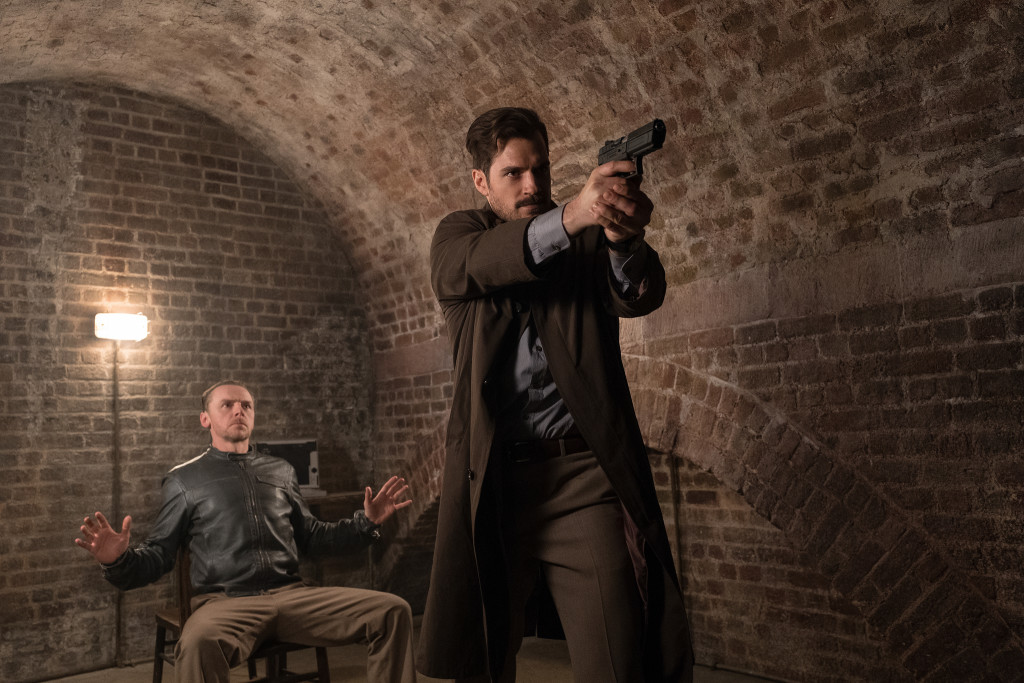Search Results for: F word
I don’t want to sway anything here (I haven’t opened the script) but I’m excited that the Scriptshadow 10 Pages Contest winner is participating in this week’s Amateur Showdown. If you’re curious about what happened to that winning script, I’ll let him field questions in the comments.
Now before we get started, I want to share a quick piece of screenwriting advice. Don’t send me scripts that center around slackers. That’s not because I have a prejudice against slackers. But a “slacker” is all of the things that a good movie character is not. He’s lazy. He’s passive. He’s reactive. And because he’s rarely active, we have to wait for the movie to come to him. There are a few comedy situations where slackers work. But whenever I see “slacker” in a logline, my eyes inadvertently roll. I would never presume what other readers like. But it’s safe to say that a slacker hero isn’t going to get anyone excited to read your script. UNLESS it’s the most hilarious premise ever. I’m bringing this up because I read five slacker submissions today.
Okay, onto the contest. You know how we do it!
Screenwriter Showdown is a single weekend tournament where the scripts have been vetted from a pile of hundreds to be featured here, for your entertainment. It’s up to you to read as much of each script as you can, then vote for your favorite in the comments section. Whoever receives the most votes by Sunday 11:59pm Pacific Time gets a review next Friday.
Let’s get some fresh blood into the next showdown! Send a PDF of your script to carsonreeves3@gmail.com with the title, genre, logline, and why you think your script should get a shot.
Good luck, everyone!
Title: Tilly Willy and his Neighbourhood Pals
Genre: Psychological Horror
Logline: A kidnapped children’s TV show host tries to earn his freedom.
Why You Should Read: Because who doesn’t love a children’s tv show in the horror genre? Also, I know you like a strong opening and I think I have exactly the type of opening you’re looking for. It’s also a contained story because I plan on filming it, which is nice with all the Blockbusters coming out.
Title: Blood Law
Genre: Revenge Thriller
Logline: A Native American ex-con looking into the disappearance of his niece finds himself on a rage-fueled journey into snuff filmmaking and 1970’s Hollywood.
Why You Should Read: Sometimes a character pops off your imagination and demands a story be written about them. John Rainbird is that character and ‘Blood Law’ is that story. It’s a gritty, unexpected, unique script with a life of its own. It’s quirky. It’s violent. It’s full of colorful and engaging characters. ‘Blood Law’ scored a coveted 8 on the Blacklist (their take: “This bloody and visceral thriller doesn’t pull any punches when it comes to its depictions of brutality and violence, but it also sports top-notch characterizations, finely crafted dialogue, and a setting absolutely dripping with tone and style: a modern love letter to the classic “revenge” films of the drive-in cinema age.”), garnered some interest from an independent producer and a major production company where the the Head of Story Development is a major advocate (Email I got from him shortly after he received the script, word for word: I wanted to let you know that I’m on page 43 of Blood Law and I had to stop and shoot you an email to tell you how much I’m loving this script.) I’m very proud of this script and eager to keep the momentum going. Would be thrilled to get the Scriptshadow community’s take. Thanks a million.
Title: The Gateway
Genre: Horror/Thriller
Logline: After losing his day job, a struggling artist and his progressive girlfriend move in with her Christian-conservative parents in an attempt to get back on their feet… only to realize that her parents release demons from hell through a doorway hidden in their house.
Why You Should Read: I’m a Nicholl quarter-finalist of 2018 and I read the site every day. One notion that always stuck out to me, is the importance of having “that scene.” I believe there are couple here; one of which was inspired by something on your ‘favorite movies’ list of 2018. Also, the social commentary came to me upon conception of the idea and I can’t ignore its ties to current trends. I had a ton of fun writing the characters (most important to me, anyway), but I’m hoping to get the your take on how it stacks up.
Title: THE GRID
Format: Pilot (hour long)
Logline: When an up-and-coming journalist is tasked with finding the story that caused his mentor to disappear, he will uncover a shocking conspiracy that will threaten his news outlet’s very existence and shake the entire country to its core.
Why You Should Read: With so many cop, lawyer and doctor shows everywhere, I’ve always found it odd that journalist shows never really break out. There’s suspense, intrigue, secrets, great characters and plenty of shows use those characters as sub-plots, but none as the primary. The exception was The Newsroom, but that was much more political than anything else, based on tv journalism and not remotely the direction this goes.
I find the profession fascinating (politics aside) and would love to have the opportunity to explore characters and plotlines in and around this field. This particular pilot isn’t written with any act breaks because I received feedback that it would be better to write with an online target audience in mind.
I’d love to get any feedback available to make this as great as it can be.
Thank you for the consideration!
Title: The Well
Genre: Psychological Horror / History
Logline: Ten years after the vicious atrocities of the Partition, a Pakistani woman attempts to make peace with the brutal murder of her family when a vengeful spirit returns to haunt her.
Why You Should Read: This is a setting and historical event that has never been depicted in Indian film, let alone Hollywood and is one of the most overlooked humanitarian crises of the 20th century as it came in the immediate aftermath of World War 2. Up to 2 million people died as a result of this mass migration, and the trauma and violence that occurred has formed the rigid backbone of the Pakistan-India conflicts we see today. By taking a supernatural angle, I’ve attempted to manifest the inner turmoil felt by the survivors as well as present a moral conflict for the reader to constantly have in mind throughout. As a Pakistani, this is an extremely important topic to my cultural history, and after hearing some of the absolute horror stories my direct ancestors faced just 70 years ago shook me to my core. This is an event that had a direct impact on every single Pakistani and Indian, and fearlessly showcasing the terror of it all will be something I’ll forever strive to accomplish.
This week started off on a bad note.
It: Chapter 2, a movie I once proclaimed had the potential to be the best movie of the year, turned out to be a big stinking bag of garbage. You know what kind of garbage I’m talking about. The kind where you clean out your fridge into the garbage bag but you still wait a few days before taking the bag out? Yeah, well It: 2 was SO BAD that if I were given the choice to either smell that bag for thirty minutes or sit through that 3 hour movie again, I would choose the bag.
However, then, like an angel coming down from the heavens, the Joker script arrived. How amazing was this script? It received a “double impressive!!!” I’ve given out four “double impressives” in the totality of Scriptshadow. What was interesting about reviewing these stories back to back is that I was directly able to contrast why one plunged and the other soared. Joker was great due to its utterly simple structure. It followed one man on a simple and clear journey. “It 2,” meanwhile, covered an endless number of characters, which sent the narrative in a million different directions, leaving us with a sprawling mess of a story. This, I proclaimed, is why you should always favor SIMPLE STORIES.
But there were a number of you who argued that there are lots of movies with multiple protagonists that are great. The first “It” had multiple characters and it did well. Then you have Avengers, Guardians, Fast and Furious, X-Men, Star Wars, Toy Story, Glass, Good Boys. It could be argued that Hollywood FAVORS the multiple-protagonist approach. Well hold on there, Sally. We still have John Wick, Captain Marvel, Spider-Man, Aladdin, and Shazam! to name a few of the big movies this year. But there is truth to the idea that more movies contain larger casts with sprawling stories. And that if you want to be a big-league writer – I’m talking one of these A-listers making 7 figures an assignment – you need to know how to write big sprawling complex scripts.
So let’s get the obvious out of the way. A script with a single hero is going to be easier to write. Period. If you have one hero, you only need to worry about one plot goal and one character transformation. Therefore you can focus all of your creative energy on making those perfect. That’s what Joker did. Arthur wanted to be a famous comedian. That’s his goal. His transformation revolved around an inability to connect with the world and the lengths he would go to make that connection. Boom. Perfect.
Once you move to a property like Avengers, you’re having to worry about that x 7. But let’s get something clear. Marvel is an enigma. It has two advantages nobody else has. It’s dealing with characters with 50+ years of history who the average person already knows. And they treat their films like TV shows, not movies. They’re connected. This means that by the time we get to an Avengers movie, we know everyone intimately. And that means the writers don’t have to spend precious time setting characters up or giving you important backstory, all of the things that can weigh a screenplay down. All they have to do is convey the plot clearly and occasionally check in to make sure you know what’s going on.
Bringing this back to today’s argument, you’ll never have that Marvel security blanket if you yourself write a multi-protagonist script. You’ll have to meticulously set everyone up, which will take seven times as long because you’ve got seven main characters instead of one. And then, once that’s over, you’ll have to set up what your characters are actually trying to do. And once that’s over, you have to bounce back and forth between each storyline in a way that keeps all the storylines going without us forgetting about or getting confused about what’s going on. You are also battling the juggernaut known as pacing. This is what destroyed It 2. Technically, we knew that each of the characters was trying to get their individual artifact. So there were clear character goals for everyone going into our second act. But each storyline was so similar and so monotonous that it began to feel like a relay race with the school’s slowest runners. Now it’s your turn to be see something scary. Now it’s your turn to see something scary. Now it’s your turn to see something scary. When I talk to people about that movie, that’s the section where they all say they checked out.
The problem that they run into and that you’ll run into when you try and write a big sprawling script, is that, inevitably, three or four of your characters won’t be that interesting. So now you’re stuck giving uninteresting characters full on scenes and it isn’t working because the characters are inherently flawed. Who cares about the fat kid turned hunk? Who cares about Eddie? Who cares about grown-up Beverly Marsh? She’s a dud. When you’re writing a single-hero story, you can put all of your time and effort into making that character the greatest most compelling most interesting character ever so that we’ll want to be around them every single second. This is how scripts like Nightcrawler get written.
HOWEVER, if you absolutely must write a big sprawling complex story with lots of characters, I have a few tips for you. First, use a MacGuffin. Create one thing that everybody is after. Greatest MacGuffin ever? The Ark of the Covenant. If you have a great MacGuffin, it ensures that the audience always knows what your characters are after. Whether it’s in minute 20 or minute 80, we know they’re still after that MacGuffin. And that makes up for one of the complex movie’s biggest weaknesses – its lack of focus. With a big clear MacGuffin, you can make your complex movie almost as focused as a John Wick.
Next – make sure the setup behind your characters’ motivations makes sense. The worst thing that can happen in a big sprawling movie is for the audience to start questioning why the characters are doing what they’re doing. This is what separates the great “It” from the terrible “It 2.” In the first movie, they’re kids who are STUCK IN THEIR TOWN when an evil clown starts hunting them. Think about that for a second. Kids can’t leave their homes. They are prisoners to their town until they’re old enough. This is why “It” worked so much better. Our characters had no choice but to fight the clown.
Contrast that with It:2 where the characters are all adults, and therefore can leave whenever they want. Now I know what a few of you are thinking. “No Carson. If they leave the town, they’ll die.” Says who? How do they know that? Where’s the proof? There isn’t any. The only reason you’re saying that is because a character said it. And the only reason a character said it is because the writer realized they had to come up with a reason why these people didn’t just hightail it out of here. So MAYBE if they try and leave, they die. Maybe. Cause somehow Pennywise has that power. Maybe. — When you start forcing desperate shaky reasoning into your character’s mouths to cover up plot holes, I got news for you buddy. Your script is in major trouble. You want your logic and motivation built into the story’s foundation, like “It” had.
Finally, if at all possible, avoid fractionating your characters. JJ Abrams hasn’t talked about Rise of Skywalker much. But one of the things he made very clear was that all the characters were going to be on an adventure together this time. This is because JJ understands that the more you divide your characters up, the more potentially confusing and rambling your story gets, and the more likely you’re going to come up with a dud sub-plot, like Canto Bite. So here’s the rule. Keep all your characters together if possible. If you’re going to split them up, limit it to two groups. It’s still possible to come up with two awesome parallel plotlines in a single movie. However, if you decide to divide your big group into three or more sub-groups, you might as well call your local funeral home and ask them if you can get an early discount on a casket. It’s not that it can’t be done. And I’m not talking about splitting individuals up, which is often done during the climax of, say, a horror film. But if you’re writing one of these big sprawling movies with multiple plotlines and multiple groups of characters, the level of screenwriting expertise required to pull that off is higher than you can imagine.
This is why I tell every aspiring screenwriter: Don’t write The Godfather before you’ve proven you can write Rocky. Don’t write The Departed before you’ve proven you can write Taken. Don’t write Inception before you’ve proven you can write The Terminator. And don’t write The Dark Knight before you’ve proven you can write “Joker.”
Yo, do you have a logline that isn’t working? Are those queries going out unanswered? Try out my logline service. It’s 25 bucks for a 1-10 rating, 150 word analysis, and a logline rewrite. I also have a deluxe service for 40 dollars that allows for unlimited e-mails back and forth where we tweak the logline until you’re satisfied. I consult on everything screenwriting related (first page, first ten pages, first act, outlines, and of course, full scripts). So if you’re interested in getting some quality feedback, e-mail me at carsonreeves1@gmail.com with the subject line: “CONSULTATION” and I’ll get back to you right away!
Genre: Thriller
Premise: An inexperienced Coast Guard Captain is put to the test when a simple submarine drug bust nets her one of the most notorious drug lords in the world.
About: This script finished low on last year’s Black List and comes from newbie writer Alex Sohn, who adapted the story from a Men’s Journal article titled, “DRUG WAR ON THE HIGH SEAS: BEHIND THE COAST GUARD’S BILLION-DOLLAR BUSTS.”
Writers: Alex Sohn (based on the aforementioned article by Hunter Atkins)
Details: 116 pages
Hey, look at me. Look at me. I am the captain now.
Three cheers to any script that inspires you to say that out loud to your nearby confused pet. What’s happening right now? Are we really going to get two IMPRESSIVES in a row? What is this, 2010, when I loved anything that had time travel or a talking animal in it? Okay, I still love time travel and talking animals (has there ever been a script with time travel AND talking animals??). But usually when you get down to the Black List basement, you find a bunch of clingers (“clingers” – adjective – definition: screenplays desperately holding onto the bottom of the Black List despite displaying no inherent skill other than knowing how to use Final Draft).
I knew right away that this script had a chance from its logline: “An inexperienced Coast Guard Captain…”. Had the word “inexperienced” not been here, I wouldn’t have opened the script. Why? Because that’s the whole movie right there. That’s where you get your main source of conflict. And identifying a source of conflict that’s going to last you an entire movie is one of the keys to writing a great script. If this is just a regular captain who gets stuck in this situation – or worse, a well-equipped captain – well then we’re pretty confident that they’re going to figure it out. People watch movies to find out what happens next. If you already know what happens next, there’s no reason to watch the movie.
26 year old Andi Mitchell is an Operations Commander on a Coast Guard ship. After the ship picks up four members of a drug boat carrying 400 kilos of cocaine, Andi’s captain delivers her some bad news. A hurricane is coming down the pike and all Coast Guard ships will be needed for rescue. However, they can’t rescue anyone with 4 drug dealers on their boat. So they’re shipping in a first generation iPhone type Coast Guard ship to hold the passengers until they clear extradition.
In other words, while the Coast Guard gets to go off into the hurricane and be all heroic, Andi has to babysit a bunch of tired drug runners. So Andi is given a ragtag B-crew of 10 men and told to hang tight. Not long after the Coast Guard leaves, however, Andi spots a pipe sticking out of the water. It’s a narco sub. Once the sub surfaces, her and her men board it and capture a mysterious man who just happens to be carrying a million dollars with him.
Not long after they bring the man onboard, their radar picks up a dot. A boat coming towards them. Then a second dot. Then five dots. Then ten. Then twenty. Then thirty. Andi decides very quickly that THEY NEED TO GET OUT OF HERE. They redline the ancient boat but the drug boats are gaining. After a chat with the Coast Guard, Andi learns what all the hubbub’s about. They’ve just picked up Salvador Morales, the biggest drug lord in Guatemala.
Out of nowhere, their boat shuts off. It’s too old to handle this Miami Vice sh&%. And with it goes the radio. Not only are they cornered, but they’ve got no way to tell anyone that they’re cornered. Andi charges down to Morales to find out what’s going on. He informs her that these men are not his friends. They’re his enemies. And they’re going to do anything to capture him alive. And if that fails? They’ll just blow up the ship. It will be up to the inexperienced Andi to make sure that doesn’t happen.
When I read a script, I have to have at least one scene I know is going to play like gangbusters in the trailer, and one unforgettable set piece that’s going to play like gangbusters in the movie. “Coast Guard” aces this test. The trailer moment is when the dots start appearing on the radar. One, two, five, ten, twenty, thirty. I love that THAT’S when we realize who they just picked up. They’re not told at first. It’s those dots appearing. That’s when we know this is serious.
The set piece is when they realize they’re going to die unless they can call for help. And Andi gets the idea to swim to a small boat that they’ve managed to take out. Everyone on that ship is dead and they have a radio. So she swims there without being seen, gets on the boat, realizes one of the men is still barely alive, calls for help on the radio, only for the boat to be boarded while she’s on it, forcing her to hide under one of the bodies, and somehow, some way, gets off of the boat alive. A great tense 10 minute set piece.
There’s some fun character work as well. I’m all for big hidden character secrets that are revealed late. But if it’s a random secret, it won’t land. It has to connect with the story in some way. For example, if it turns out Andi accidentally killed her kid in a car crash a year ago – dead child reveal is a VERY COMMON reveal I read in scripts – that can be in any script because of how non-specific it is, and therefore it lands with a thud. But what we learn here is that Andi used to be a major drug addict and gang member. It works because the whole movie is her angrily wanting to take down every single drug runner. So when that reveal comes, we finally understand why.
KYSM. Know Your Subject Matter. I knew I was in good hands right away after reading this line. “They have to stay in international waters until their extradition clears. That could be days. Or weeks.” It might seem like a nothing-line to the casual reader. But I’ve read all the lazy writers who would write a script about the Coast Guard and have no idea what extradition is or how it works. That line gave me the confidence that the writer was on top of this world.
And guys, research isn’t just to placate readers like me. The more you know, the more plot avenues are available to you. Extradition creates a very unique plot situation here, which ends up getting them into trouble. They can’t leave international waters until the extradition clears. So they’re stuck here. Had the writer not known about extradition, then Andi can bring the criminals back to the U.S. and the movie’s over.
And finally, can I just say how great water is for a movie? It traps your characters, infusing your script with drama before you’ve even written anything. You just have to make sure when you write something on water that the execution is great, like it is here, since it’s really hard to shoot on water. There are men and women in Hollywood still scarred by the productions of Waterworld and Titanic. So make sure your script is killer.
[ ] What the hell did I just watch?
[ ] wasn’t for me
[ ] worth the price of admission
[x] impressive
[ ] genius
What I learned: Whenever your script hits a lull (you can feel it as you’re reading it back to yourself), introduce a NEW TICKING TIME BOMB. This will create the script equivalent of a double shot of espresso. Here, we’d been in this standoff with the drug ships for 30-40 pages. It wasn’t getting boring. But the script definitely needed a spark. So what they did was they had one of the boat hands realize that the drug runners were waiting for the cover of nighttime. That’s when they were going to strike. This created an entirely new sense of urgency since they now needed to execute a plan before nightfall.
Might we have another highly reviewed amateur script on Scriptshadow? Read today’s review to find out!
Genre: Thriller
Premise: Trapped in a secluded cabin, a hunter and his daughter fend off attacks from a relentless grizzly bear hell-bent on vengeance for the death of its cub at their hands.
Why You Should Read: I vividly remember the sensation of being stalked by a black bear during one summer visit to the Sierras… Well, stalked is a bit strong – it passed me within grabbing distance. Still, the feeling of power in its gait, the potential explosion of ferocity if it so pleased was unsettling and stuck with me ever since.
Writer: Walon Costello
Details: 84 pages (just to be clear, that this is an UPDATED draft from last week. Walon addressed some of your notes)
I’ve got one question.
Did Walon write this script in one day?
Because Wednesday I reviewed a nature thriller and all I talked about was how a lack of character development hurt the script. I read a nature thriller today and… IT’S ALL CHARACTER DEVELOPMENT. So either Walon read my complaints and wrote this in a day, or he has the ability to freeze time so that he can take as long as he wants to write a script.
I bet you’re wondering what all that character development did. Would it prove that I was right? Or would it turn out that all character development does is slow down a script to an unbearable crawl? Read on to find out!
Our teaser opens with a deer being chased through the woods by something unseen. Then, just as it makes it to a clearing, it’s SMASHED INTO by a car, which goes careening off the road. The driver, a man, is instantly killed. The woman in the passenger seat is going to wish her death was that quick. Because seconds later, a little bear cub comes in and starts nibbling on her dead boyfriend. Then, seconds after that, a much bigger mama bear arrives. And this woman turns into her lunch.
Cut to a week later and Hank (40) along with his daughter, Zoe (20), are driving through those same woods. They make it to an old gas station, where the car from the teaser is being kept until someone can come along and trash it. It’s here where we learn that that car and the people who were in it are the reason Hank and Zoe are here. The woman is Hank’s drug addict ex-wife, and Zoe’s mother. Since she wasn’t found in the wreckage, they’ve come up here to look for her.
The two head up to the family’s cabin which the mom was staying at. This once regal camping fortress is now a barely standing rotted-out piece of garbage. Hank and Zoe use it as a home base to go out and look for mom. They arm themselves just in case, and after a long search, Zoe notices something coming at her out of the corner of her eye, turns and shoots. She’s horrified to see that she’s killed a baby cub.
They get back to the cabin late and decide to stay for the night. But almost immediately, they hear something outside. It’s Mama bear (“Mama”). She’s come to get revenge. At first, Hank doesn’t give her any credit. She’s a freaking bear. Not John Wick. And even if she was the bear version of John Wick, she can’t break into a house. Well, that may be true. But remember, this isn’t exactly Fort Knox. And Mama starts prying for ways in.
Having left the only guns in the car, the two are forced to move around the cabin to stay clear of Mama, who has the added advantage of being a black bear in total darkness. We’re never quite sure where she’s going to pop up next. Finally, she’s able to get into the house. Zoe moves to the bathroom while the injured Hank finds another spot to hide. I don’t want to spoil anything but let me put it this way. Not everyone is getting out of this house alive.
First thoughts?
Overwritten first page!
I kept having to go back and read it over and over again. Walon was trying to be too cute with the wording. It may sound weird but he was TOO DESCRIPTIVE. And in trying to paint a picture, he painted a Picasso. It was angular and tilted and hard to make out what you were looking at.
So things didn’t start well.
However, once we get to Hank and Zoe, the script gets a lot better. Like I said, Wednesday we had no character development. Here, we have a lot. There’s a ton going on with these two. For starters, their wife/mother left them, became a drug addict/prostitute, and now drives around and robs people to feed her habit, along with whatever co-conspirator she can find.
This makes their search party complicated. Lesser writers would’ve had the mom be the perfect mother – her life robbed by the randomness of some angry animal. By making her a drug addict who’d abandoned her family, their connection with her is much messier. The reason why this tends to work better is because it mirrors real life. Real life is rarely drawn with straight lines. The lines are squiggly. And the color between them is gray. Just that choice alone made this feel authentic.
Also, Zoe is newly pregnant. And one of the ongoing themes here is the idea of, should Hank and his wife have had Zoe? They were way too young. They weren’t ready to be adults. And it turns out that maybe it was a mistake. Mom eventually prioritized getting high over parenting. We also learn that it was Hank who initially wanted the abortion. And now Zoe’s in the exact same spot they were, weighing whether she’s ready to be a mom, and using her own less-than-wonderful time on earth to decide if she wants her own kid to go through that hell.
In other words, THERE’S A LOT GOING ON HERE. And Walon is really clever in how he thematically connects their family troubles to the threat. Here these people are, weighing whether it’s right for their children to even be born, while Mother Bear will stop at nothing to avenge the death of her own child.
Another thing I liked that Walon did was he OPENED UP a portion of the CONTAINED THRILLER. I think that when we write contained thrillers, we get this idea that they have to be contained from start to finish, if only to convey to producers that it will be cheap to make. However, I like when contained thriller writers start their scripts OPENED UP so as to create the illusion of a bigger story. Between the teaser and seeing these two drive in and the gas station scene – it made the movie feel bigger than it was. Had Walon started this script with the two of them showing up at the cabin, I’m not sure I would’ve felt the same way about the script.
There were a couple of things I didn’t love. The script does get a little repetitive at times inside the cabin. There are only so many ways to stay away from a window. But the biggest issue was that dad and daughter don’t have anything unresolved with one another. Despite all of the intense stuff with mom, Hank and Zoe seem to be good. And I kept wondering if that could’ve been improved somehow. In fact, a couple of times I thought, “I wonder if this would be better if Zoe was trapped in here with her drug-addict mom who’d abandoned her?” You can imagine how much more tense those conversations would be.
Despite that, I thought this was a good spec. The best Amateur Friday script this year behind Cop Cam. I could easily see this pitched as “Jaws with a bear.” The problem with all the Jaws clones over the years is that they’re too similar to Jaws. This feels just enough like its own thing that you don’t find yourself constantly comparing it to that movie, which is the last thing you want to happen as a writer. You want your script to be your own, not some lesser version of a better movie.
I battled back and forth on this as far as whether to give it a single or double ‘worth the read,’ and I’m going to settle on a single because dad and daughter didn’t have anything to resolve with one another. And it wasn’t just that. It was that Walon was trying to make it seem like they were butting heads despite the fact that there wasn’t any reason to. For example, she kept calling him “Hank” instead of “Dad.” And all I thought was, “Wait, she likes her dad. Why avoid that title when addressing him?” If future drafts would address that, I could easily see bumping up the score.
But this was solid writing. Good job, Walon.
Script link (new draft): Grisly
[ ] What the hell did I just read?
[ ] wasn’t for me
[x] worth the read
[ ] impressive
[ ] genius
What I learned: Regarding the first page. Remember, all writers overwrite. But the good ones don’t make it LOOK like they overwrote.
A big complaint I had with yesterday’s script was that the character writing was too thin. The extent of the character work was that the main character was grieving the loss of their father. On the surface that sounds like a deep issue to explore. A family death is a tragic experience for most people. But that’s only if you actually explore it. If it’s something mentioned at the beginning of the script and then it never comes into play again, that’s not good character development. To be clear: If nothing “develops” then it’s not character “development.”
I received an interesting response in the comments section pointing out that in these quick thriller and action scripts, you don’t have time to develop characters. I’ve heard this argument quite a bit. And the people who use it actually go one step further. It’s not just that you don’t have time, they argue, but the audience isn’t interested in character development in movies like this. They just want to see volcanoes impale people. Or John Wick throw ninja stars at the bad guys. I understand what they’re saying because it’s partly true. People go to dramas to see character exploration. They go to action movies to see action.
But what they’re forgetting is that the degree to which your audience connects to your characters is the same degree to which they care during the action scenes. Have you ever watched the most amazing big budget action scene ever and yet been totally bored? Chances are, it’s because you felt nothing for the characters involved. Have you ever watched a garden variety action scene and been riveted? Chances are you felt a closeness to the characters akin to the way you feel around your best friends. The only difference between those two scenarios is character development. The writer is doing something with the characters that’s making you feel a greater connection to them.
So where did this “no country for character development in action” rumor begin? I suspect it comes from franchises like Mission Impossible, James Bond, and Fast and Furious. Because, yeah, there isn’t a lot of character development in those films. But that’s because those characters stopped changing a long time ago. These days they’re more like old friends who come around every once in awhile to catch up. This creates the false impression that, well, those characters aren’t changing, so mine don’t need to change either.
And they don’t. There’s no rule that says your character HAS TO DEVELOP. But if you want to create more of a connection between your audience and your story, character development is the bridge that’s going to take you there.
But what is character development? Why do people have such a tough time boiling it down? I don’t know and I don’t care. Because what I’m about to do is tell you the secret to great character development. Are you ready? Here it is: There are two stories going on. The story in your movie and the story in your character. In other words, your character IS A STORY UNTO HIMSELF. Once you internalize that, your character writing is going to increase a hundred-fold.
That’s because you’re not just trying to move your plot from point A to point Z. You’re moving the story within your character from point A to point Z as well. So let’s take a very simplistic view of this and use yesterday’s script as an example. The main character’s dad had recently died. That’s why our hero was going on this trip. Well, how do you build a story WITHIN THE CHARACTER about that? The most obvious way is that they haven’t been able to move past their father’s death yet. So point A is that they’re still consumed by the death of their father. Point Z, then, is that they’ve finally found peace with their father’s death. And there you go. That’s a character’s inner story right there.
Still confused? Go watch the Pixar movie, “Up,” where this exact same inner journey is explored. In that script, the writers explored the hero’s issue through his refusal to connect with others. He’s been so hurt by his wife’s death that he doesn’t let anyone else in. So what happens? A little kid keeps trying to get in and get in and get in, until our hero’s defenses finally break down. By accepting this new friend into his life, he has finally gotten over his wife’s passing. Was this harder to write then simply having an old guy and a kid go on an adventure together? Of course. Which is why most people write that version. But if you want to affect people, you have to write the version that has inner character stories as well. It will take you longer but I promise it will be worth it.
And the great thing about a character’s inner story is that it doesn’t have to be one thing. It can be about moving past something. It can be about a deep set flaw that’s holding someone back. It can be about one’s struggle with an addiction. As long as you explore it in an honest way and that there’s some level of CHANGE in the character (they go from point A to point Z by the end of the script) then you’re writing something better than the average bear.
But how do you find these things, Carson? What kind of inner struggles are going to work in a movie about running from killer robots or hunting down Russian gangsters who killed your cat? The universal kind. The kind all of us go through at various points in our lives. Start with yourself. What are the major flaws holding you back in life? Do you constantly doubt yourself and therefore never take chances? Are you afraid to get close to people so you put up a wall? Do you put your work over your family? If you can’t find anything in yourself that works for your hero, move to friends and family. It’s easier for us to see our friends’ flaws than it is our own. Does someone not stand up for themselves enough? Is someone too close-minded? Does someone spend all their time planning for the future as opposed to living in the present?
Once you understand what a person’s flaw is (Point A) you understand where you need to take them (Point Z). You just have to make sure you check in on the inner story throughout the outer story. If a character only thinks about the future, you’re going to add 7-8 scenes (think of these as “Check In Scenes”) throughout the script where they’re given opportunities to enjoy the present and argue with other characters about why their way is the right way. I’m making it sound easy even though it’s not. You have to do all of this in a way that’s seamlessly integrated into the plot. The conversations can’t be on the nose. They have to seem spontaneous and organic to the place and time. But I’m telling you, your script is going to be better for it. Think of it this way: When you include a character’s inner story, the audience is getting two stories for the price of one.
And I’ll finish this by reiterating something it took a long time to learn: Hollywood has a million people who can put together a plot. But there are only around 100 who can create compelling characters. Which is why those writers are the most coveted. Do with that info what you will! :)


